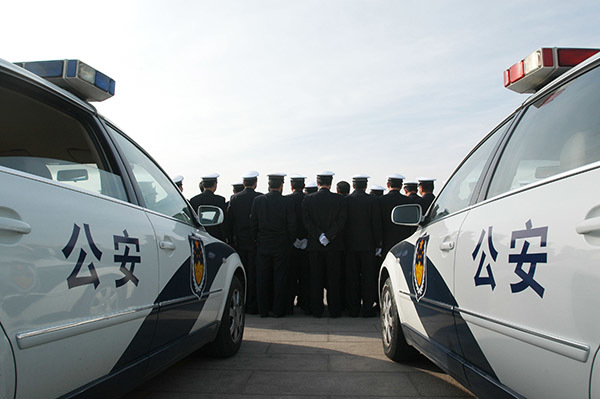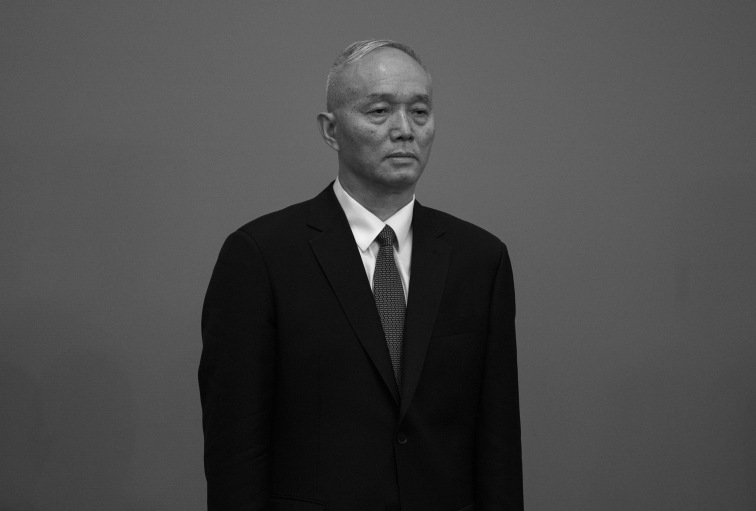Selected Readings of Xi Jinping’s Works” displays a promotion sign reading “as low as 10% of original price.” (Image from the internet)
[People News] In prominent locations of major bookstores across today’s China you can always see rows of books published in Xi Jinping’s name — covers gleaming gold, priced high — yet they are often covered in dust. In the photo, the towering stacks of the Xi Jinping: The Governance of China series and Selected Readings of Xi Jinping’s Works, even with a promotional sign proclaiming “as low as 10% of original price,” still attract no attention.
Why have these “national tomes” fallen to such a state? Perhaps this is not just market cold-shouldering, but a silent popular protest against this “publishing frenzy.” This article will analyze, one by one, from counts of volume, concerns about royalties, the mystery of authorship, the contrast before and after taking office, comparisons domestic and international, to potential corruption suspicions, and finally an absurd speculation about the future.
1. First, let’s take inventory: how many books has Xi actually produced?
Xi Jinping’s publishing history can be divided into two phases: before taking office (born 1953, before assuming office in 2012) and after taking office. According to the list of Xi Jinping’s works on Wikipedia, in his earlier years as a local official he edited or participated in about 8–10 local-level publications, such as 1985–2000 Xiamen Economic and Social Development Strategy (1985), The Soul of the Enterprise (1992, volumes I & II), Fuzhou’s 20-Year Economic and Social Development Strategy Proposals (1993), etc. These were mostly work summaries or local chronicles, fairly limited in number and far from personal “masterpieces.”
The real “explosion” began after he took office in 2012. Official channels such as the Party History and Documentation Research Institute list dozens of “important works,” including Xi Jinping: The Governance of China (now in 5 volumes), Selected Letters of Xi Jinping, On Upholding the Harmonious Coexistence of Man and Nature, and more.
Overseas media and online tallies are even more astonishing: Radio Free Asia reported that in more than a decade in power some 300 volumes have been issued and distributed by more than 20 publishers across Eurasia; YouTuber Wang Zhian estimated that by 2023 annual issuance alone reached tens of millions of copies; the Goodreads platform even records 205 books published in his name.
Taken together, the total is at least 150 books. Over 13 years in office (2012–2025), that averages about 11–12 books per year. This ranks him among the world’s most “prolific” leaders — yet it also raises the question: how could one person possibly produce such a massive annual output?
2. If every Party member bought a set, how much would the royalties be?
The number of Chinese Communist Party members has surpassed 100 million, reaching 100.271 million by the end of 2024. Suppose every Party member was compelled or “voluntarily” bought a set of Xi Jinping’s complete works (counting series like Selected Readings of Xi Jinping’s Works — roughly 10–15 books per set, average price 1,000 yuan per set). Total sales would reach 100 million sets, with total revenue of 100 billion yuan. Using China’s standard book royalty rates of 7%–10% (the People’s Publishing House has confirmed that books attributed to leaders also follow this), royalties would amount to 7–10 billion yuan. That doesn’t even include purchases made with public funds: according to China Publishing & Media Commerce Daily, in the latter half of December 2023, 12 of the top 20 bestselling entries were Xi-related books, with distribution volumes over one hundred million copies.
Early prints like Xi Jinping: The Governance of China had first printings in the millions, and royalties for a single title could exceed 100 million yuan. Such “astronomical royalties” far surpass ordinary authors’ standards of 100–150 yuan per thousand characters. Xi’s book publications resemble a public-funds feast.
3. Who actually writes the books?
Open one of these volumes and you mostly find compilations of speeches, selected letters, or collections of essays — for example, On Grasping the New Development Stage (2021) is largely an edited compilation drawn from public speeches.
The authorities have never disclosed whether a “writing team” polishes these works, but much like in Mao-era practices, leaders’ writings are often edited and compiled by the Central Literature Research Office. Overseas analysts argue that these are not the sole creations of Xi Jinping but products of a propaganda machinery — speech recordings transcribed and then “distilled” by experts. If Xi truly authored them alone, producing 12 books a year would be a miracle. This also explains why the content is repetitive and verbose, lacking deep innovation, and fails to resonate with readers.
4. Why had Xi published virtually nothing before taking office?
Before taking office, Xi — a member of the “princeling” faction who served in Fujian, Zhejiang and other places — had few publications, limited to a handful of local work manuals.
Why? Simple: he was not the “core” then and lacked state resources being funneled to him. Early books circulated internally and were not mass-market. After 2012, with “Xi Thought” entering the Constitution, publication became a systematic project: from reprints of Escaping Poverty (2014 reprint) to multi-volume sets, all coordinated by the Propaganda Department, with first printings often in the millions. The contrast before and after highlights this: power determines “output,” not talent.
5. A comparison with national leaders, past and present, at home and abroad
It is common for leaders to publish books, but Xi’s “industrialized” scale is unique. Domestically: Mao Zedong’s Selected Works spans four volumes (compiled later), Deng Xiaoping’s Selected Works three volumes, Jiang Zemin and Hu Jintao each one to two volumes — all far fewer than Xi’s hundred-volume scale.
Abroad: Obama published three memoirs post-presidency including A Promised Land, selling on the strength of personal charisma; Churchill authored over 40 volumes of history in his lifetime, but much of it was written after retirement and often self-financed; Roosevelt had just one political collection. Across history, Chinese-style leader publishing often serves as a propaganda tool rather than a means of personal expression. While Mao emphasized “thought reform,” Xi employs publishing to reinforce his “core” status — but it also exposes institutional dependence: without power, there is no massive output.
6. Is publishing while in office a form of corruption?
This is the most controversial point. Supporters call the publishing a “cultural contribution” — Deng Xiaoping’s selected works purportedly inspired reform. Critics see it as “covert corruption”: officials use publication as a means to siphon funds, first print runs underwritten by public money, sales propped by coercion.
Xinhua once reported that retired leaders often donate royalties to education, but for incumbent leaders like Xi, where royalties go is unclear and could become a “hidden channel.” The UN Convention against Corruption stresses that a public official profiting from office is corruption.
In an economic downturn, this “elegant corruption” becomes all the more ironic: citizens who cannot afford housing are nonetheless told to “study” expensive “canonical” texts.
7. If Xi lives to 150, how many more books would he publish?
Xi was born in 1953 and is currently 72. If, as the rumor says, he somehow lived to 150, he would have 78 years remaining. At the current rate of about 12 books a year, he would publish another 936 books, pushing his total beyond one thousand! At that point, “Xi Thought” might occupy half the shelves of libraries. But this “longevity publishing” would be unlikely to mask market embarrassment: deep discounts and empty shelves reflect not only aesthetic fatigue but popular weariness of forced indoctrination. Perhaps the real reason these books are “unsought” is that the narrative of power is out of sync with reality.
In short, Xi’s “sea of books” may be grand in scale, but it cannot hide an inner emptiness. Books are meant to convey ideas; if they become tools to extract money, they lose their original purpose. One hopes that in the future, leaders’ works will return to genuine insight rather than become a numbers game.
(Source: Author X account)△










News magazine bootstrap themes!
I like this themes, fast loading and look profesional
Thank you Carlos!
You're welcome!
Please support me with give positive rating!
Yes Sure!